
In this edition of EcoNews, we bring you the map showing where thousands of hectares of N.B. forest will be sprayed with herbicides this summer and help you to send your #StopSpraying letter to end this old-fashioned practice; we call out the government’s claims that it can’t meet the federal 2030 coal phase out and encourage you to write to the Minister to demand a plan for 80 per cent renewable energy in N.B. by 2030; we bring you the updated list of New Brunswick’s biggest climate polluters; we invite you to nominate your favourite journalist for the Beth McLaughlin Environmental Journalism Award before the upcoming submission deadline; and more.
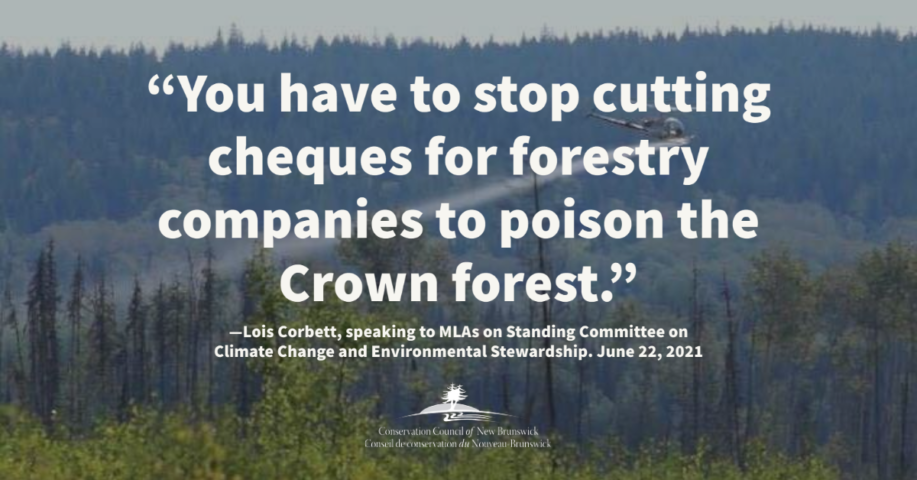
Where Our Forest Is Being Sprayed This Summer
The government has released the 2021 herbicide map showing where thousands of hectares of New Brunswick forest will be sprayed with herbicides this summer. As you know, our Executive Director Lois Corbett recently called for a new Crown Lands and Forests Act based around ecological forestry, including a ban on glyphosate use in the Crown forest, during the standing committee hearings last month. Click the link below to see if spraying is happening near your community, and use our letter-writing tool to call on MLAs to end this unnecessary, old-fashioned, and taxpayer-funded practice

We Can Achieve 80% Renewables in New Brunswick by 2030
We are speaking out and calling on New Brunswickers to speak up following claims from the Minister of Natural Resources and Energy Development, Mike Holland, that the province will not meet the federal government’s 2030 coal phase out. Minister Holland says NB can’t phase out coal without building an expensive gas-fired power plant, and needs to keep burning coal into 2040 to allow small modular nuclear reactors to come online. But his claims just don’t stand up to the facts—or NB Power’s own analysis. Read our factsheet showing how an investment in renewables can meet our energy needs and cost citizens and the utility less than fossil fuels or SMRs, and use our new letter-writing tool to call on Minister Holland for a plan to hit 80 per cent renewables by the end of this decade.
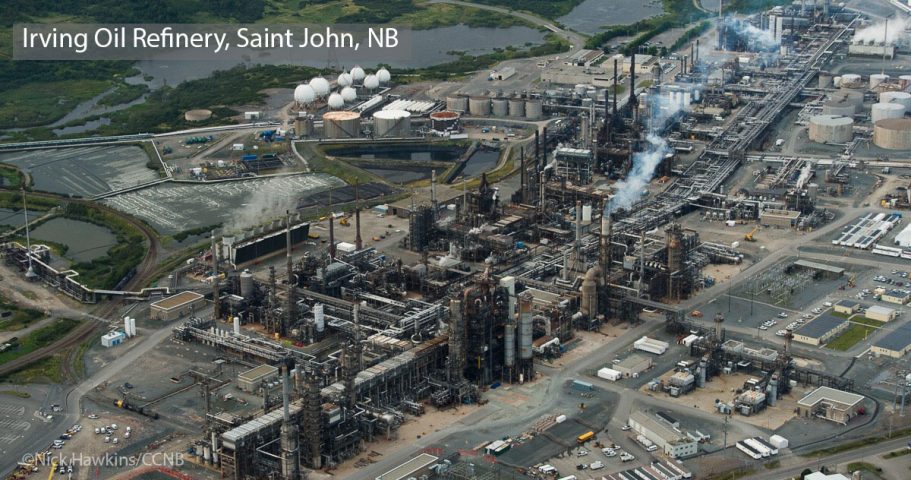
Updated: See Who Pollutes Our Climate The Most In N.B.
We’ve updated our list of the companies and facilities producing the most climate change-causing pollution in New Brunswick with the latest available data from the National Pollutant Release Inventory. In 2019, New Brunswick’s three biggest polluters spewed out nearly six times the amount of greenhouse gas emissions produced by the other top polluters combined.
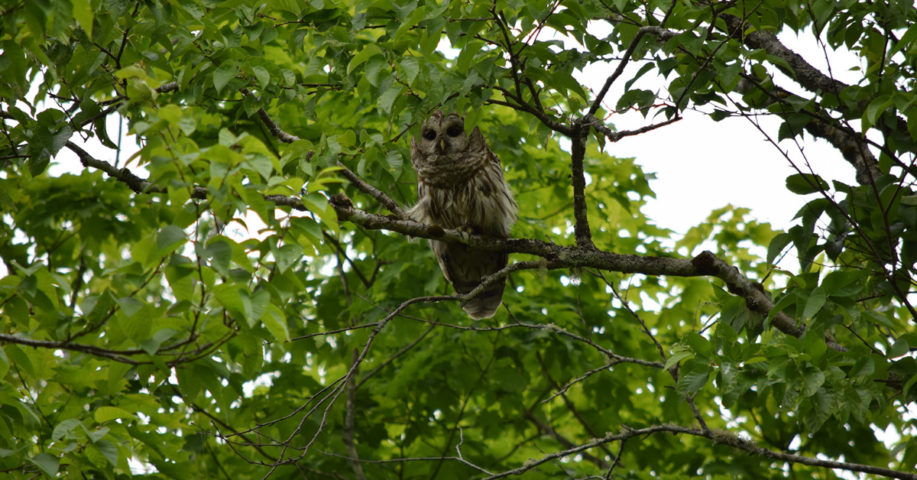
A Better Protected Acadian Forest: New Candidate Areas For Conservation Open for Public Comment
The provincial government has added new candidate areas to its online portal where New Brunswick citizens, Indigenous peoples, and conservation groups can add their support for the natural spaces being considered for protected area status. This third round of public comments runs until August 31, 2021 and covers 106,995 hectares of new Candidate Conserved Areas. Click the link below to find the map where you can add your voice for a better protected Acadian forest.
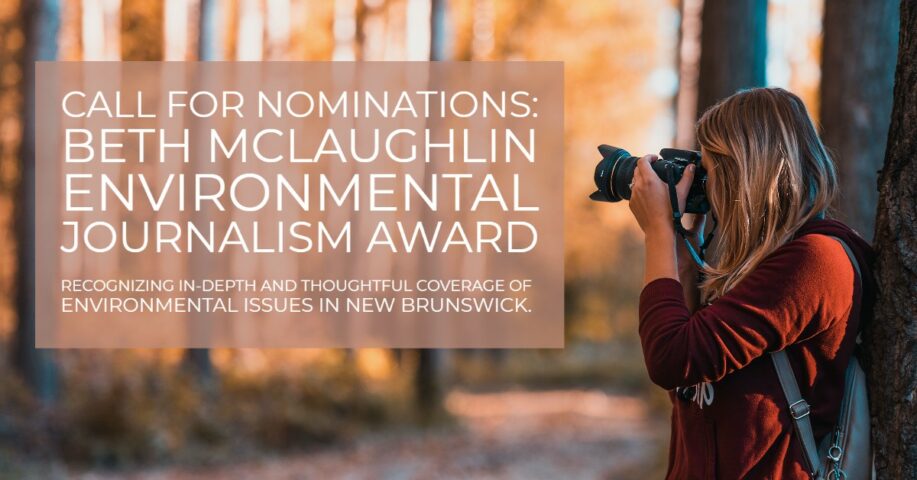
Still Time to Nominate Your Pick For The 6th Annual Beth McLaughlin Environmental Journalism Award
You still have a few days left to nominate your choice for the 6th annual Beth McLaughlin Environmental Journalism Award. This award is presented by our Southeast Chapter in recognition of in-depth and thoughtful coverage of environmental issues in New Brunswick. We invite journalists from traditional news media, independents, non-profits, citizen journalists and students to submit their finest work by July 31.
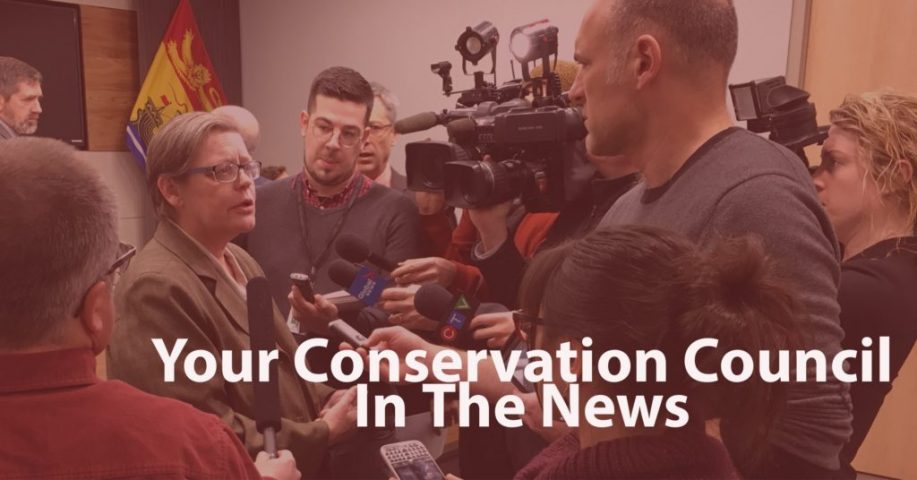
We work hard to ensure a strong environmental voice is heard in the New Brunswick print, radio and television media. Here are the latest stories Conservation Council staff have been called upon for expertise, analysis and commentary:
July 22, 2021 — Matt Abbott, our Director of Marine Conservation, spoke with Radio-Canada about the need for New Brunswick to switch to 80 per cent renewable energy by 2030. Listen to the segment (French only), which begins at 11:20, here.
July 21, 2021 — Louise Comeau, our Director of Climate Change and Energy Solutions, spoke to reporters to rebut Minister Holland’s claims that New Brunswick can’t meet the federal government’s 2030 coal phase out without building an expensive gas-fired plant or small modular nuclear reactors. Read the Global New Brunswick story here. Read the CBC New Brunswick story here.
July 15, 2021 — Matt Abbott spoke with CTV Atlantic about a new report that shows the extent of severe stress North Atlantic right whales and a host of other species are experiencing in eastern Canadian waters.
